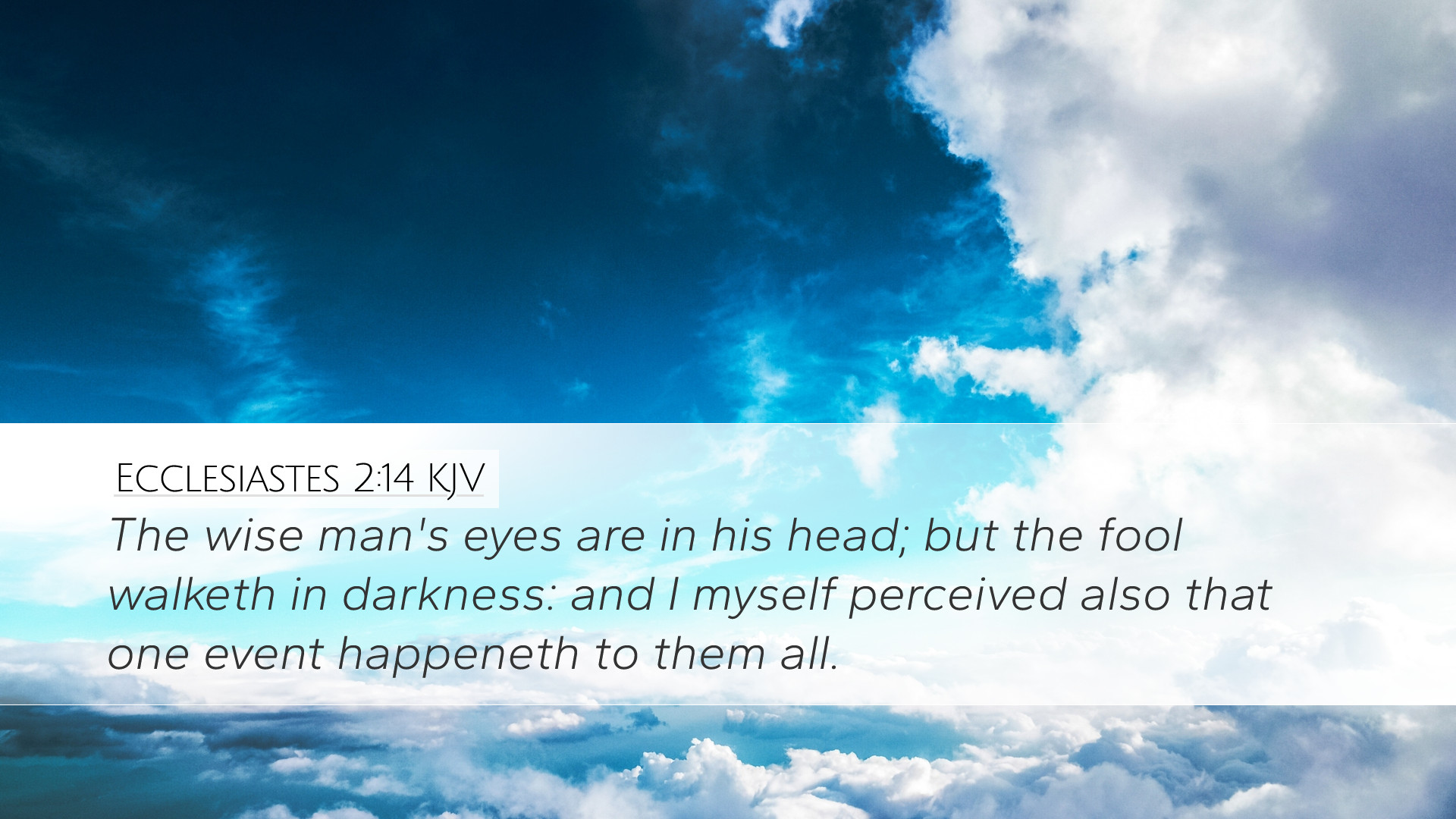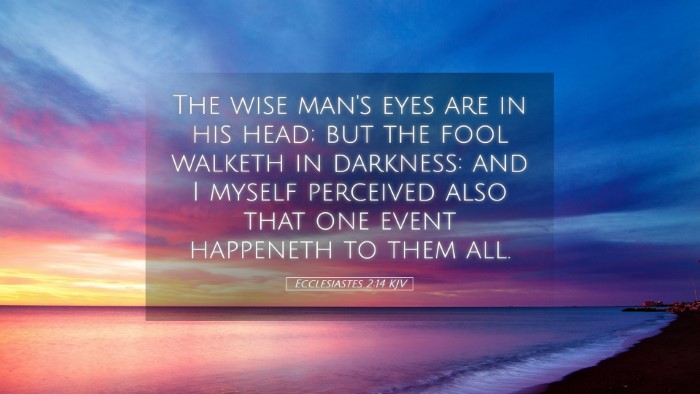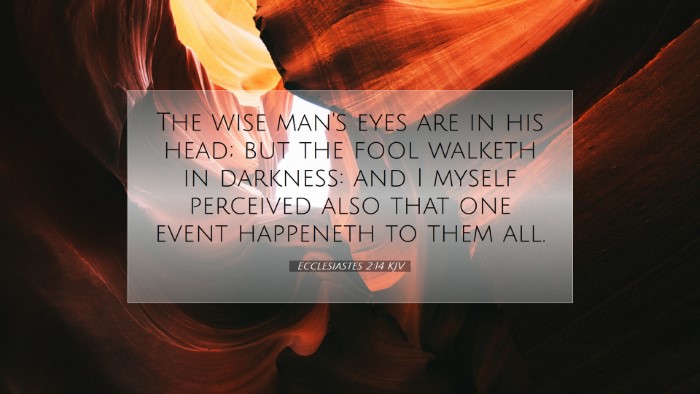Commentary on Ecclesiastes 2:14
Verse in Context: Ecclesiastes 2:14 states, "The wise man's eyes are in his head; but the fool walketh in darkness: and I myself perceived also that one event happeneth to them all."
Introduction
This verse serves as a poignant reflection on the wisdom and folly of human existence as perceived by Solomon, the Preacher. This commentary aims to delve into the theological implications and existential realities presented in this verse, drawing upon the insights of notable public domain commentators such as Matthew Henry, Albert Barnes, and Adam Clarke.
Analysis of Key Phrases
- The Wise Man's Eyes: Here, Solomon contrasts the wise, who have discernment and insight into life’s realities. According to Matthew Henry, the wise "see clearly what they are doing and where they are going, understanding the paths of life."
- Walketh in Darkness: The fool, in stark contrast, is said to walk in darkness. Albert Barnes remarks that this signifies ignorance and a lack of understanding of life’s deeper meanings, leading to detrimental choices.
- One Event Happeneth to Them All: This phrase emphasizes the universal fate of humanity. Adam Clarke comments that Solomon observes the inevitability of death, which befalls both the wise and the foolish alike, thereby highlighting the futility of worldly pursuits.
Contextual Insights
Ecclesiastes is often viewed as a meditation on the meaning of life and the human condition. In the broader context of Chapter 2, Solomon is critically examining pleasure, wisdom, and labor. The tension between joy and futility characterizes much of this reflection.
According to Matthew Henry, the Preacher’s pursuit of knowledge and enjoyment reveals the limitations inherent in human experiences when disconnected from divine purpose.
Theological Reflections
Human Wisdom vs. Divine Understanding: The wisdom emphasized in this verse is not merely intellectual but also spiritual. Both Barnes and Clarke suggest that true understanding is rooted in a relationship with God, who provides clarity amidst life's uncertainties.
The Nature of Life's Events: The inevitability of 'one event' occurring to all—wisdom and folly alike—points to a shared human experience that cannot be escaped. This fosters humility and a recognition of our shared mortality.
Practical Application
This verse challenges the reader to reflect on their life choices. Wise living is characterized by awareness and intentionality, while foolishness leads to spiritual blindness. Below are some practical applications derived from the commentary:
- Seek Wisdom: Engage with the Scriptures and cultivate a life aligned with God’s principles.
- Recognize Your Mortality: Live with an awareness of eternity, making choices that reflect the values of God's kingdom.
- Guide Others: Help those who walk in darkness by sharing the light of wisdom found in Christ.
Conclusion
Ecclesiastes 2:14 invites us to critically examine our understanding of wisdom and folly. Through the insights of Henry, Barnes, and Clarke, we see the necessity of divine perspective in navigating life's complexities. As we embrace wisdom, let us also hold on to the understanding that all share in the human experience—reminding us to live purposefully and in light of eternity.


